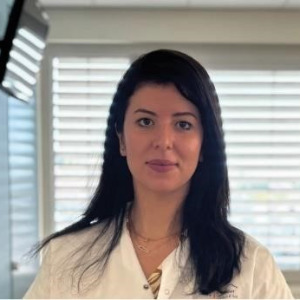Radiation & Combined-Modality Therapy
Radiation therapy remains a cornerstone in cancer treatment, offering precise tumor targeting while sparing healthy tissue. Radiation & Combined-Modality Therapy integrates radiation with other treatment strategies such as chemotherapy, immunotherapy, and targeted agents to enhance therapeutic efficacy and improve patient outcomes. Advances in imaging, dose planning, and delivery techniques, including intensity-modulated radiation therapy (IMRT) and stereotactic body radiation therapy (SBRT), allow for highly precise interventions. By combining modalities, clinicians can exploit synergistic effects that improve tumor control, reduce recurrence risk, and minimize toxicity. Multidisciplinary collaboration among radiation oncologists, medical oncologists, surgeons, and supportive care teams ensures that treatment plans are tailored to individual patient needs.
The field of Radiation & Combined-Modality Therapy continues to evolve with the integration of novel systemic therapies and adaptive radiation strategies. Personalized treatment planning guided by molecular profiling and imaging biomarkers allows clinicians to optimize sequencing and dosing of therapies. Clinical trials investigating combination regimens, including radiosensitizers, immunotherapies, and targeted agents, are expanding options for patients with both localized and advanced disease. Supportive care and survivorship planning remain essential to managing side effects and maintaining quality of life. By combining advanced radiation techniques with systemic therapies and multidisciplinary care, radiation and combined-modality therapy provide a precision oncology approach that maximizes efficacy, improves long-term outcomes, and enhances overall patient well-being.

Rajvir Dahiya
University of California San Francisco, United States
Atif A Ahmed
University of Washington-Seattle Children’s Hospital, United States
Thomas J Webster
Northeastern University, United States
Paulo Cesar De Morais
Catholic University of Brasilia, Brazil
Allen Chen
Olympic Medical Center, United States
Shilpa S Dhar
UT MD Anderson Cancer Center, United States



Title : A novel blood-based mRNA genomics technology for cancer diagnosis and treatment
Rajvir Dahiya, University of California San Francisco, United States
Title : Nanomedicine in humans: 30 years of fighting diseases
Thomas J Webster, Northeastern University, United States
Title : Diagnosis and treatment of primary cardiac lymphoma in an immunocompetent 27-year-old man
Moataz Taha Mahmoud Abdelsalam, Madinah Cardiac Center, Saudi Arabia
Title : tRNA-derived fragment 3′tRF-AlaAGC modulates cell chemoresistance and M2 macrophage polarization via binding to TRADD in breast cancer
Feng Yan, The Affiliated Cancer Hospital of Nanjing Medical University, China
Title : Multiplexed biosensor detection of cancer biomarkers
Michael Thompson, University of Toronto, Canada
Title : Personalized and Precision Medicine (PPM) through the view of biodesign-inspired translational research: An option for clinical oncologists, caregivers, and consumers to realize the potential of genomics-informed care to secure human biosafety
Sergey Suchkov, N.D. Zelinskii Institute for Organic Chemistry of the Russian Academy of Sciences, Russian Federation